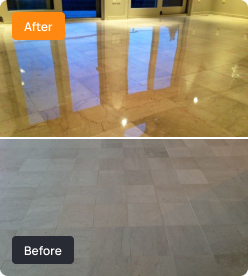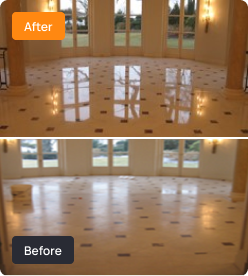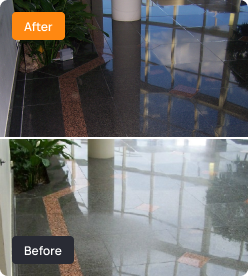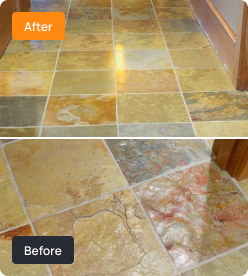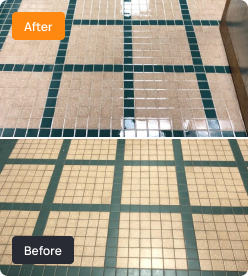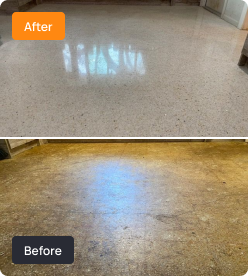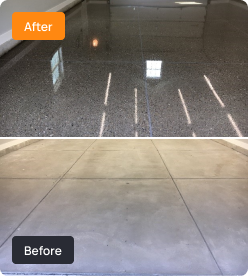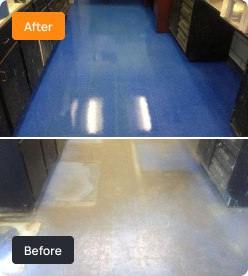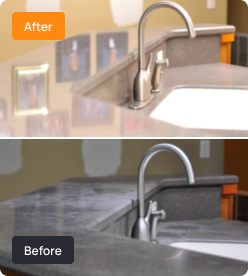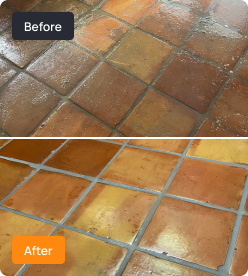Can Sealing Your Marble Save You Money in the Long Run?
Marble stands as a symbol of elegance and luxury in homes across the globe. Its timeless beauty enhances countertops, floors, and bathrooms, making it a preferred choice for homeowners seeking both style and sophistication. However, the upkeep of marble surfaces presents a unique set of challenges. To preserve its pristine condition and protect against potential […]
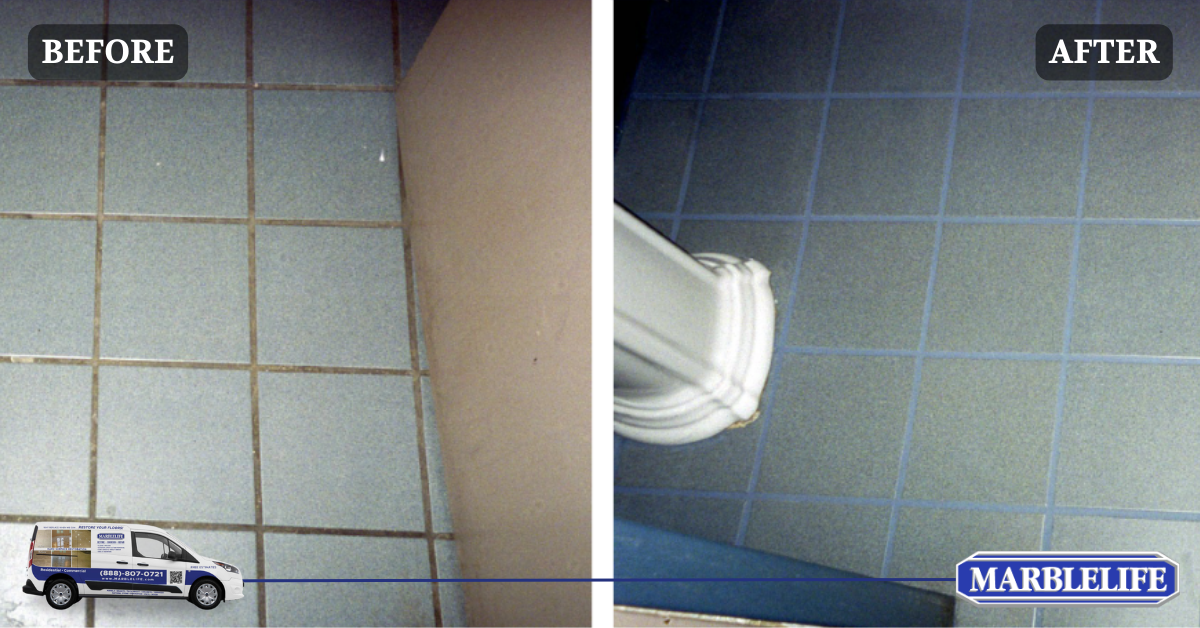

Marble stands as a symbol of elegance and luxury in homes across the globe. Its timeless beauty enhances countertops, floors, and bathrooms, making it a preferred choice for homeowners seeking both style and sophistication. However, the upkeep of marble surfaces presents a unique set of challenges. To preserve its pristine condition and protect against potential damage, professional sealing emerges as a critical maintenance strategy. This blog explores the financial and practical benefits of professional marble sealing, offering homeowners valuable insights into protecting their investment.
Characteristics of Marble
Marble is renowned for its distinct veining and array of colors, which can complement any interior design scheme. This natural stone is formed from limestone subjected to extreme heat and pressure, resulting in a dense, yet porous material. Its porosity makes it susceptible to staining and etching, prompting the need for careful maintenance.
Common Uses in Homes
In the home, marble is most commonly found in high-impact areas such as kitchen countertops, bathroom vanities, and flooring. These surfaces are not only focal points of beauty but also high-traffic areas that are exposed to various substances and wear over time.
Maintenance Challenges
Despite its beauty, marble’s susceptibility to acid, spills, and even water spots require it to be properly protected. Its porous nature means spills can penetrate the surface, leading to stains. Acidic cleaners, vinegar and acidic drink spills can etch the marble. Etching effectively means dissolving away the surface of the marble. That mark is not dirt, but missing marble. These marks take the form of a drink ring, a spatter mark, a spill droplet or if cleaning with marble the entire surface. Typically we can determine the cause based on shape of the marred area on the surface. These challenges underscore the importance of regular and professional maintenance to ensure its longevity. It also means understanding how each of our cleaners and sealers will interact with your marble. When it comes to marble, travertine or limestone you need a cleaner that specifically states it is safe for use on this surface.
The Importance of Professional Marble Sealing
Sealing marble involves applying a protective stain barrier that penetrates the stone, filling the pores and repelling staining agents from penetrating the surface. This process not only protects the marble but also makes it easier to clean. Failure to seal, will make the very act of cleaning a potential source of staining. Staining occurs when liquid carrying a colored dirt or oil enters the stone pore. The water evaporates away leaving the colored dirt or oil deposited in the pore BENEATH the easy-to-wipe surface. This repeated cleaning on an unsealed surface will result in staining. The first clue is that water can darken the surface. The good news is that water will evaporate away. Oils and greases however are not so easily removed. Soluble solids can be transferred and deposited in this manner. Once stained, removing that stain cannot be done with clothes and brushes but must be withdrawn using poultices and taking advantage of natures desire to balance differences in concentrations.
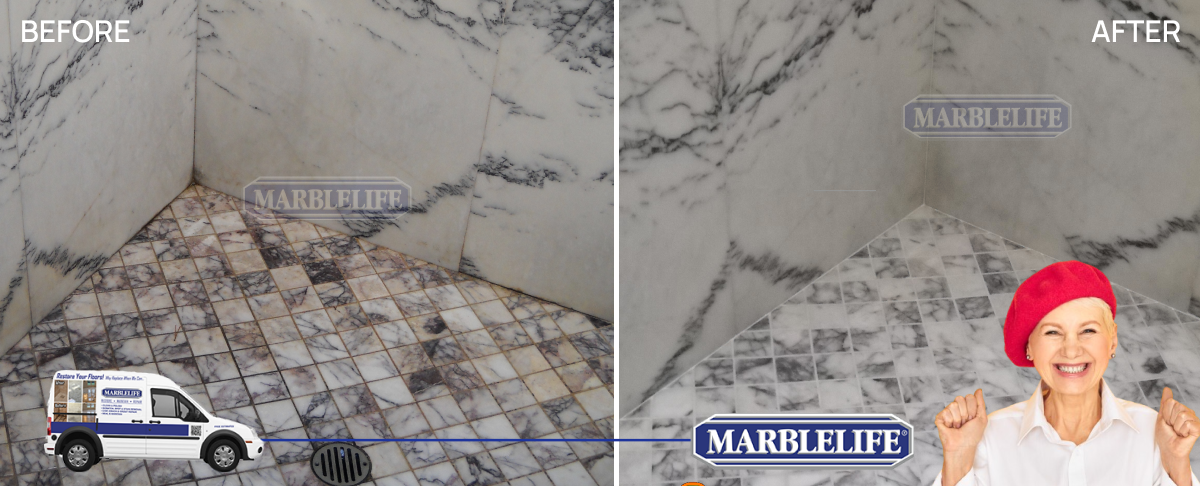
Why Professional Solutions?
The basics of sealing a surface are simple enough. Clean the surface. Apply Sealer. Allow it to absorb into the pores. Remove the excess from the surface. Awaits cure period to achieve maximum protection.
Why is this recommended to be done by a professional craftsman? The process sounds simple. It is but as with many crafts, the details matter. Kind of like why your home made hamburger doesn’t taste the same as McDonalds, Burger King, Five Guys, Wendy’s or the many other gourmet burger preparers. Each has a unique recipe honed to perfection to provide a consistent tasty outcome.
When it comes to sealing the same is true. Failure to properly clean the surface could see us seal in stains. Use of inappropriate cleaners could have deposited a wax on the surface that needs to be removed first. Once applying the seal it must be present long enough to seep into the pores, but wait too long to remove and this become a sticky mess. if fully cured, it will need to be re-solvated or wait a few more hours – ground off the surface.
How long does it take to cure?
It matters in determining how you use the sealed surface during the first few days. You can use it immediately once the surface is dried, but should refrain from cleaning the surface and certainly stay away from acidic surfaces, which don’t only etch the marble, but can remove the seal.
It will generally take 7-days for the seal to fully cure. it cures top down, with the surface skinning over rather quickly. The reason it takes time to reach full strength is the moisture required to cure the seal must pass through the now sealed surface cure to reach the unreacted portion deeper within the pores. Sealer materials must keep out LIQUID water while allowing MOISTURE VAPOR to pass through.. Furthermore, professionals possess the expertise to apply these sealants evenly, ensuring comprehensive protection without altering the natural beauty of the marble.
Types of Professional Sealants
Sealers can vary in chemistry, topical versus penetrating, and by solvating materials including solvents and water-base. Water-base sounds preferred, however takes more time and energy to apply, as the excess material takes substantial more work to buff off. Solvent materials go done much easier. if you are doing it your self, solvent based is more easily applied. Topical sealers become coatings, which now alter the behavior of the surface. Generally softer than stone, these might be useful on surfaces that will see repeated contact with acids, but will sacrifice mechanical wear properties. Damage the coating and the full coating needs to be removed, whereas a penetrating sealer area can be spot repaired without issue.
Topical sealers will also be used to enhance or enrich color. This is particularly popular on slate surfaces to give it a richer deep color as seen when it is wet.
Benefits of Professional Sealing
Enhanced Protection
Professional sealing services offer unparalleled protection for marble surfaces. This enhanced shield prevents stains from spills like oil, wine, and coffee, which are common in kitchens and bathrooms. By blocking the pores in the marble, professional sealants enhance stain resistance buying you additional time to wipe up accidental spills without suffering staining.
Durability and Lifespan
One of the most significant advantages of opting for professional sealing is the extended lifespan of marble surfaces. Sealers have no impact on traffic durability, but will avoid the surface being discarded due to unsightly staining.
Aesthetics and Value Preservation
Marble is an investment that adds value and beauty to any home. Professional sealing helps maintain the stone’s aesthetic appeal, ensuring that it remains as striking as the day it was installed. This not only enhances the enjoyment of your home but also preserves its value, should you ever decide to sell.
Cost-Benefit Analysis of Professional Sealing
Upfront Costs vs. Long-Term Savings
While professional sealing services involve a small initial investment, the long-term savings are significant. By preventing stains and damage, professional sealing reduces the need for costly repairs or replacement. This makes it a financially wise choice for homeowners looking to protect their investment in marble surfaces.
Sealing is similar to insurance. One may not like making the insurance payment, but if and when an accident occurs one is happy to have it. Sealing is similar. If you have built a home with marble counters you will remember how many slab yards you visited looking for the right stone, then reviewing natural slabs to make sure you counter shapes can be fabricated without use of slab imperfections. The time cost alone is significant. Add in the fact that your slabs were likely all from a single quarry and in sequence to assure similar matching colors, or to ensure the slab flow worked harmoniously counter to counter. Now you want to replace a single stained counter?
Mother nature has no quality assurance program. What looks like the same type and color may exhibit subtle differences that jump out when the new piece is placed next to the prior. That means we may be looking at replacing all the counters to avoid color issues. That could mean a $5000 to $15000 expense.
Sealing may run $1 to $2/sqft making even a large countertop sealing cost a small fraction of the cost in time, money and disruption. Fabrication costs at the time of this writing are running $45/sqft (up 50% since pre-covid $30/sqft).
Sealing annually is recommended to ensure continued protection in a working kitchen and every 2 years for non working kitchens, but don’t forget. You do not want a stain to be your reminder you were supposed to get your counters sealed. We recommend scheduling your next seal at the time of each seal. This means working with a craftsman that has been in business for several years.
The time to have replacement fabricated. The demo and removal of the stain counter means dust and cost.
The Economic Advantage of Professional Care
Investing in professional marble care pays off by minimizing maintenance costs over time. The cost of professional sealing is often less than the expense associated with restoring damaged marble. Furthermore, by extending the lifespan of marble surfaces, homeowners can delay costly renovations, adding to the economic benefits of professional sealing.
Biggest Sealing Myths
Warranty differences – Silicone based sealers are the most commonly used penetrating countertop sealers. Beware MARKETING HYPE that seeks to differentiate sealer brands based on warranty. It is the small print that becomes important. Warranties have been seen with small print elements requiring you maintain original sealer receipt, or another one that required you maintain the original packaging. I mean really? Who is going to maintain an empty sealer bottle for years? No one. The author’s favorite was the invalidation of the seal based on acid spills or contacts. Given this is what would damage or remove the seal, the failure of the seal is the proof of acid expo effectively making the warranty worthless. Generally, the seal will fail if exposed to acid, which means avoid cleaning with vinegar an often promoted natural cleaner. Vinegar is acidic and it will damage grout and counter penetrating seals.
Etch Protection Claims – the most often false claims heard on a fabrication slab floor is that a penetrating sealer will protect against etching. Simply not the case. Topical sealers do exist that provide a barrier between counter and acid, however this is rarely applied due to its high costs which can run higher than the slab cost itself.
Resinated Slabs – Resination is the practice of drawing a polyester resin through the slab back to front to fill in pores in order to reduce slab brittleness in order to increase the stones ability to travel via ocean transport without being damaged in rough seas. Note the purpose is NOT to seal the stone. Pores that do not go fully through the slab are not filled. The intent is NOT to seal the stone, but the true intent does reduce the amount of open pores in the slab. As such this does reduce stain potential but cannot be called a sealer.
Insights from Homeowners and Experts
Expert Opinions
Marble care professionals unanimously agree on the importance of sealing marble surfaces. They emphasize a penetration sealer, applied correctly, can dramatically extend the life of marble, making it more resistant to everyday stain hazards. Experts also note that professional sealing is recommended in order to ensure sealer is properly installed.
Homeowner Experiences
Homeowners who have invested in professional marble sealing services report high satisfaction rates. Many note the peace of mind that comes from knowing their surfaces are protected against spills and stains. Testimonials often highlight the visible difference in marble’s appearance and durability after professional sealing, underscoring its value in maintaining the home’s beauty and integrity.
Conclusion
The decision to seal marble surfaces professionally is a smart investment in the longevity and beauty of your home. By protecting against stains, extending the marble’s lifespan, and preserving its aesthetic appeal, professional sealing services offer a cost-effective solution to marble maintenance. This preventive measure not only saves money in the long run but also ensures that marble surfaces continue to add value and elegance to your home.
If you’re considering the best care for your marble surfaces, consult with a professional marble sealing service today. Explore the options available to protect your investment and maintain the beauty of your home. Share your experiences or questions in the comments below, and let’s discuss the best practices for marble care together.


